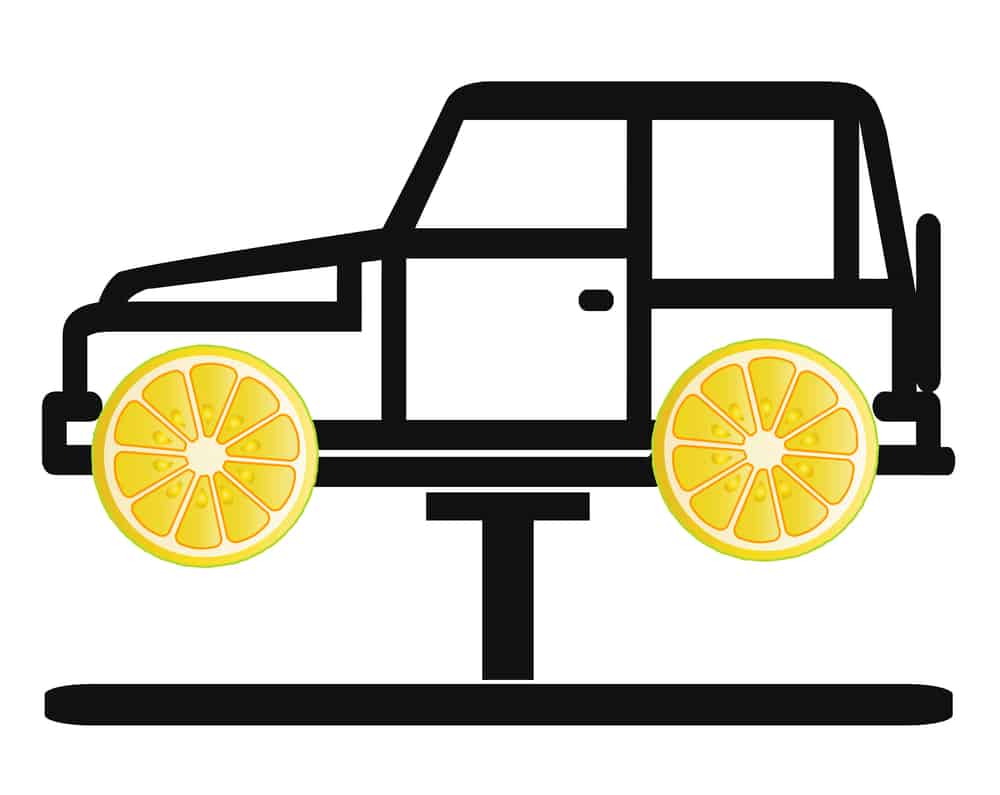A lemon car is a term commonly used to describe a vehicle that consistently fails to meet quality and performance standards. It often refers to new vehicles, but some older or pre-owned cars can also be considered lemons. Buyers of these defective vehicles may deal with constant mechanical issues and hefty repair costs, making the automobile a burden rather than a reliable mode of transportation.
There are various criteria to determine if a car is a lemon. Some of these criteria include a substantial defect that persists even after numerous repairs, critical safety flaws, or vehicles that spend excessive time in the repair shop. Laws in many countries, including lemon laws in the United States, have been created to protect consumers from purchasing such vehicles and to provide remedies if they unknowingly buy a lemon car.
Understanding what constitutes a lemon car is essential for car buyers. Identifying a potential lemon’s signs and red flags can save consumers from making an expensive and frustrating purchase. In this article, we’ll explore common indicators of lemon cars and provide helpful tips for car buyers to avoid falling victim to these subpar vehicles.

What Is a Lemon Car?
A lemon car is typically referred to as a new or used vehicle with a substantial defect that significantly impacts its functionality, safety, or value. These defects often arise shortly after the purchase and persist despite the seller’s or manufacturer’s multiple repair attempts.
Regarding new cars, lemon law protections exist in many countries and regions to safeguard consumers from purchasing defective vehicles. These laws typically give buyers the right to a replacement car, refund, or repair within a certain period after the purchase.
However, used cars may not always be covered by lemon laws or have limited protections. Therefore, it’s essential for buyers to thoroughly inspect and research a used car’s history before making a purchase, as detecting potential lemon cars can save time, money, and frustration.
Lemon cars can manifest a range of substantial defects; some examples include the following:
- Engine problems, such as overheating or stalling
- Transmission issues, including slipping gears or failure to engage
- Electrical system malfunctions, including faulty wiring or lights
- Structural damage or rust affecting the vehicle’s safety and integrity
- Persistent and unresolved issues involving the vehicle’s steering or brakes
In conclusion, a lemon car is a new or used vehicle with severe defects, potentially diminishing its value and causing safety concerns. Therefore, buyers should exercise due diligence when purchasing a vehicle to avoid unexpected costs and frustration related to lemon cars.
Lemon Laws in Different States
Lemon laws vary from state to state, but they aim to protect consumers purchasing defective vehicles. Some states have more comprehensive lemon laws, while others have limited protections. This section will discuss the lemon laws in a few selected states, including Michigan, New York, Pennsylvania, New Jersey, Maryland, Illinois, Louisiana, and California.
In Michigan, the lemon law covers new vehicles for one year or 12,000 miles, whichever comes first. After that, consumers have up to a year to report defects to the manufacturer. If the manufacturer cannot fix the defect within three attempts, the consumer is entitled to a refund or replacement vehicle.
New York offers a comprehensive lemon law with coverage that extends to new and used cars, leased vehicles, and motorhomes. The law covers defects within the first two years, 18,000 miles for new vehicles, or within the first 90 days, or 4,000 miles for used cars.
In Pennsylvania, the Lemon law covers newly purchased or leased motor vehicles with defects within 12 months or 12,000 miles. If a defect cannot be fixed within three attempts or the car is out of service for 30 cumulative days due to a fault, the consumer has a right to a refund or replacement.
New Jersey’s lemon law covers new vehicles and used cars with defects within the first 24 months or 24,000 miles. If a vehicle is not repaired within three attempts or is out of service for 20 cumulative days, the owner can pursue a refund or replacement vehicle.
In Maryland, if a new vehicle has defects that cannot be fixed within four attempts or 30 days within the first 15 months or 15,000 miles, the vehicle is considered a lemon. Maryland’s lemon law also covers used cars sold by dealers with less than 50,000 miles.
Illinois lemon law covers new vehicles with defects within the first 12 months or 12,000 miles. If a vehicle has been out of service for at least 30 days or has had four unsuccessful repair attempts, the consumer can request a refund or replacement vehicle.
Louisiana’s lemon law applies to new vehicles with defects within the first year or 12,000 miles. After that, consumers must notify the manufacturer of any defects. If they cannot be fixed within four attempts or the vehicle is out of service for 90 days, they are entitled to a refund or a replacement vehicle.
In California, the Lemon law covers vehicles with defects within 18 months or 18,000 miles. The law also covers used cars as long as they are still under their original manufacturer’s warranty. If a manufacturer cannot fix a vehicle after a reasonable number of attempts, the consumer can request a refund or a replacement vehicle.

Identifying a Lemon Car
Safety Hazards
When identifying a lemon car, one of the primary concerns should be safety hazards. These are issues that pose a risk to the driver, passengers, or pedestrians. Some common safety hazards in a lemon car include malfunctioning brake systems, steering problems, and vehicle compartment defects. Therefore, it’s essential to thoroughly inspect the car for any signs of these issues, which may include:
- Uneven wear on brake pads
- Heavy steering or noises when turning
- Hissing or unusual noises from the compartment area
Defects and Repairs
A lemon car often has numerous defects and requires frequent, expensive repairs. These issues might not always be apparent at first glance, but warning signs could include:
- Inconsistent or rough idling
- Smoke from the exhaust or under the hood
- A history of multiple repairs for the same issue
Examining the car’s repair history and being aware of any recurring problems is crucial. In addition, a pre-purchase inspection by a professional mechanic can help identify any existing or potential defects.
Warranty Concerns
Warranty concerns are another essential aspect to consider when identifying a lemon car. A vehicle with continuous or expired warranty claims can be a red flag. Additionally, the buyer may be responsible for out-of-pocket expenses if the manufacturer’s warranty does not cover certain repairs or defects. To avoid purchasing a lemon car, carefully review the warranty documentation, and consider the following points:
- Are there any remaining warranty periods?
- Has the warranty been voided for any reason?
- Are any known defects explicitly excluded from the warranty coverage?
Buyers can more effectively identify and avoid purchasing a lemon car by focusing on these crucial aspects – safety hazards, defects and repairs, and warranty concerns.
Lemon Law Process
Reporting the Defects
When a consumer discovers defects in their vehicle that could classify it as a lemon, they should promptly notify the dealer or manufacturer. Documenting all correspondence, including dates and details of the issues, is essential. Consumers should also document repair attempts and maintain copies of repair invoices as evidence.
Dealer’s Responsibility
Upon receiving a defect report from the consumer, the dealer is responsible for making necessary repairs. They should attempt to fix the problem within a reasonable number of tries. If the defect persists after the manufacturer has had a chance to remedy the issue, the consumer may be eligible for a refund or replacement vehicle.
| Attempt(s) | Action |
|---|---|
| 1-3 | The dealer should fix the defect |
| 4+ | Consumers may be eligible for a refund or replacement |
Arbitration
If the dealer and consumer cannot agree regarding a refund or replacement, the consumer can seek arbitration. In this process, a neutral third party will evaluate the case and issue a decision. The two parties involved, the dealer and consumer, must abide by the arbitrator’s ruling.
Steps in the arbitration process:
- Consumer files a claim with the arbitration program
- Both parties submit their evidence and documentation
- A hearing takes place wherein both sides present their cases
- The arbitrator issues a decision, which can include a refund or replacement
- Dealer and consumer comply with the decision
Following these steps, the Lemon Law process protects consumers’ rights and holds dealers accountable for their products. Through clear communication and adherence to the outlined procedures, consumers can navigate the process effectively and ensure that ongoing defects do not compromise their investment in a vehicle.
Lemon Law Documentation
Documenting Repairs
When dealing with a lemon car, proper documentation is crucial. It is essential to keep a detailed record of all the repairs, including dates and the nature of the issues. This can be done through:
- Service invoices from authorized service centers
- Inspection reports
- Written statements from qualified technicians
Maintaining these documents shows the vehicle’s recurring problems and ensures a smoother process when seeking compensation.
Keeping Receipts
To build a strong case under Lemon law, preserving all receipts related to repair costs and maintenance expenses is essential. These receipts should contain the following:
- Detailed information about the performed repair work
- The name of the service provider
- Dates and total costs of the repairs
Organizing and presenting these receipts alongside other documentation will provide a comprehensive overview of the vehicle’s issues.
Legal Correspondence
Communication with the manufacturer or dealer is essential to pursuing a lemon law claim. All correspondence must be documented, including:
- Emails and letters discussing the vehicle’s problems
- Phone call logs with dates, times, and representative names
- Any agreements or settlements arrangements
This legal correspondence can serve as vital proof of attempts to resolve the vehicle’s issues and demonstrate the need for compensation.
Federal Lemon Law and Used Cars
The Federal Lemon Law, also known as the Magnuson-Moss Warranty Act, is a U.S. federal law that protects consumers from faulty products. Although this law covers various consumer goods, it is especially relevant to the auto industry, where it serves as a safety net for car buyers who are sold defective vehicles.
Used cars, however, are not always covered under the Federal Lemon Law. This is because the act explicitly addresses vehicles with a written warranty. Unfortunately, many used cars are sold without warranties or on an “as-is” basis, leaving buyers with limited recourse in the case of a lemon.
In cases where a used car is sold with a remaining manufacturer’s warranty, the Federal Lemon Law can apply. This requires the manufacturer or dealer to repair or replace the vehicle if it exhibits persistent defects within a reasonable number of attempts. Typically, this means at least four unsuccessful repair attempts or if the car is out of service for 30 days within a specific period.
When the Federal Lemon Law does not cover a used car, buyers may resort to state lemon laws for protection. Often, these laws are specifically tailored for used vehicles and can offer additional levels of consumer protection. For instance, some state laws might require used car dealers to provide a minimum warranty period for engine and transmission components.
Consumers must research their state’s lemon laws when considering a used car purchase and ensure they are informed of their rights and protections. Additionally, understanding the Magnuson-Moss Warranty Act can empower buyers to act if they find themselves saddled with a lemon vehicle.
Seeking Legal Help
Hiring an Attorney
If you suspect that your car is a lemon, it may be necessary to consult with an attorney who specializes in lemon law cases. To find the right attorney:
- First, perform thorough research on recommended lawyers in your area.
- Next, check online reviews and ask for referrals from friends or family who have dealt with similar cases.
- Finally, ensure the attorney has experience handling lemon law cases.
An experienced attorney will help you understand your rights, gather the necessary documentation, and advise you on the best action.
Going to Court
If negotiations with the car manufacturer or dealer fail, taking the case to court may be required. However, before going to court, consider the following:
- Evaluate the strength of your case: Your attorney will help you determine if your case has a strong legal foundation and whether going to court is the best option.
- Prepare your evidence: Gather all relevant documentation, including vehicle records, repair receipts, and communication with the dealer or manufacturer.
- Understand the legal process: Learn about the court procedures and the timeline for your case. Your attorney will guide you through this process.
- Estimate costs: Court and attorney fees can be expensive, so it’s essential to understand the potential costs associated with pursuing a lawsuit.
Keep in mind that going to court can be time-consuming and stressful. However, if your case is strong and you have an experienced attorney on your side, it may be worth the effort to seek legal remedies for a lemon car.
Consumer Rights and Protections
Reasonable Repair Attempts
Consumers have the right to expect a reasonable number of repair attempts to be made on their vehicle if they believe it is a lemon. The specific lemon laws in each state typically define a reasonable number of attempts. It usually means the dealership is given multiple opportunities to repair the vehicle’s substantial defects within a reasonable time.
- A reasonable amount of time usually refers to the first 12 to 18 months of ownership or during the car’s warranty period.
- Substantial defects significantly impair the vehicle’s use, value, or safety.
Consumers must keep documentation of all repair attempts, including dates and issues addressed, as this information can serve as evidence if legal action becomes necessary.
Repurchase and Compensation
If a dealership cannot repair a lemon vehicle after a reasonable number of attempts, the consumer may be entitled to either a repurchase or compensation. Repurchase means the dealership repurchases the car, usually at the original price. At the same time, compensation refers to a monetary settlement that typically covers the difference in the vehicle’s diminished value due to its defects.
| Option | Description |
|---|---|
| Repurchase | The dealership buys back the vehicle at its original purchase price or a price agreed upon by both parties. |
| Compensation | Monetary settlement to cover the diminished value of the lemon vehicle |
Consumers must understand their rights and the specific lemon laws in their state to ensure they receive the appropriate remedy. The repurchase or compensation process can be complex and require legal assistance to navigate successfully.
FAQs
What is a lemon car?
A lemon car is a vehicle that experiences major manufacturing defects or ongoing mechanical problems that cannot be remedied despite multiple repair attempts. These issues often render the vehicle unsafe or unsuitable for daily use.
What are some signs of a lemon car?
- Frequent breakdowns or mechanical issues.
- Severe electrical problems.
- Signs of poor workmanship, such as misaligned body parts or paint discrepancies.
- Abnormal fluid leaks or excessive oil consumption.
- Persistent issues, even after multiple repairs.
What are the legal protections for consumers who purchase a lemon car?
Many countries have lemon laws to protect consumers, which may vary by jurisdiction. In the United States, for example, most states have lemon laws that require manufacturers to either replace the defective vehicle or provide a refund. These laws generally apply to new and used cars under specific conditions, such as:
- The vehicle is within a certain age range or has limited miles on the odometer.
- Multiple attempts to repair the defect have been unsuccessful.
- The vehicle has been out of service for several days due to repairs.
How can consumers avoid purchasing a lemon car?
To minimize the risk of purchasing a lemon car, consumers can take the following steps:
- First, research the vehicle make and model to identify any known issues.
- Inspect and test drive the vehicle thoroughly before buying.
- Review the vehicle’s service history and maintenance records.
- Obtain a pre-purchase inspection from a trusted mechanic.
- Finally, check for any manufacturer recalls or consumer complaints.



